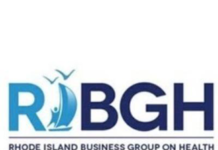Through the Rhode Island Procurement Technical Assistance Center, a cooperative
agreement between the state and Department of Defense, one Cranston manufacturer
has secured countless federal contracts over the past 10 years.
Electro Standards Laboratory – which makes switches, conversion devices and specialized cabling for computer networks – has been involved with the Rhode Island Economic Development Corporation and PTAC for 15 years, according to company President Ray Sepe.
“If we didn’t have PTAC searching in this manner for us – free of charge – we would have to consider subscribing to an industry publication, which would cost dollars,” Sepe said. “It provides valuable assistance that we wouldn’t be able to afford otherwise.”
PTAC, managed by the EDC, helped more than 300 Rhode Island companies get $104.4 million in federal government contracts last year. A national program was established in 1986, funded by matching grants from the Department of Defense and the states; Rhode Island started its own in 1990.
“This is competitive like any other market; we just level the playing field between the companies that have made a living from federal contracts and those who just entered it,” said Dorothy Reynolds, PTAC program manager. “The companies whose majority of business is from federal contracts don’t need our help” – it’s the businesses that don’t have the time, money or access that need help.
Contracts in 2003 ranged from $1,500 to $26 million, and 22 federal agencies, 14 state government groups and a number of Rhode Island, Massachusetts and Connecticut municipalities awarded them, the EDC said.
“It’s 3,000 jobs – bottom line, it (creates) jobs,” she said of PTAC’s benefits. “It gives them access to more stable work – in some cases, long-term contracts.”
According to Reynolds, 60 percent of the contracts are with the Department of Defense. Out of that group, 80 percent are service providers, she said, and 30 percent of the clients are local manufacturers.
One of the PTAC’s services is a computerized bid-matching system, based on each company’s capability profile, linking them directly to the Department of Defense and other contract announcements. Any resulting bid matches are sent directly to the company by e-mail.
Northwest Woolen Mills in Woonsocket – a wool textile fabric supplier to the federal government – has used the system for two or three years, according to company President Max Brickle, and the manufacturer has found success with PTAC’s bid-matching.
“We highlight the material we’re interested in and 98 percent of what is out there we get through them,” he said. Northwest used to have another service, but canceled it because the EDC’s provided full coverage, Brickle said. “We definitely participate in more contracts.” The service has also led the company to many smaller federal contracts that have been valuable, once tallied.
Counselors also give one-on-one sessions to help companies interpret Federal Acquisition Regulations, respond to solicitation notices, access research and development funding, attain General Service Administration schedule contracts and get access to other resources and procedures.
Another manufacturer, National Laminating Inc., in East Providence, has utilized the bid-matching service for at least seven years, according to General Manager and Owner Peter Morley. PTAC has helped the company obtain a variety of defense, civilian, military, federal and state contracts.
“Beyond (the system), when we got into detailed areas of purchase orders and government specifications, they’ve been helpful,” he said. “They’ve definitely been an asset.”
Not all businesses are best suited for federal contract work, Reynolds said.
“We tell them whether this is appropriate for them,” she said. “This is not a solution for a company in trouble in the commercial market. It’s not a fix – they have to be a strong company commercially.”
Sepe said that most of Electro Standards’ products – components for fiber optic network switching or backup switching – go to large defense contractors like Raytheon and Lockheed, the Federal Aviation Administration, the Navy and Department of Defense.
“One of the largest buyers is the federal government, and I would guess that Rhode Island does not get a proportionate share of that business,” Sepe said. “It’s not easy to pursue that kind of business. Any (bid-matching) system is going to help.”
Brickle said that the bid-matching system provides small manufacturers like Northwest with federally protected textiles contracts, set aside for small businesses and with the requirement that the entire product be made in this country.
“It’s a great opportunity, especially with defense contracts,” he said.
The center offers a national connection to a network of other similar companies; the other New England PTACs meet often, Reynolds said, and readily share information.
“It’s an opportunity for them to reach out to the business community; we’re trying to help them stay here but also to link them up with other businesses,” she said. “We’re part of the puzzle that helps make Rhode Island business stronger.”
Reynolds said that the center would be one of the tools made available to
companies through the Every Company Counts initiative from the EDC.













